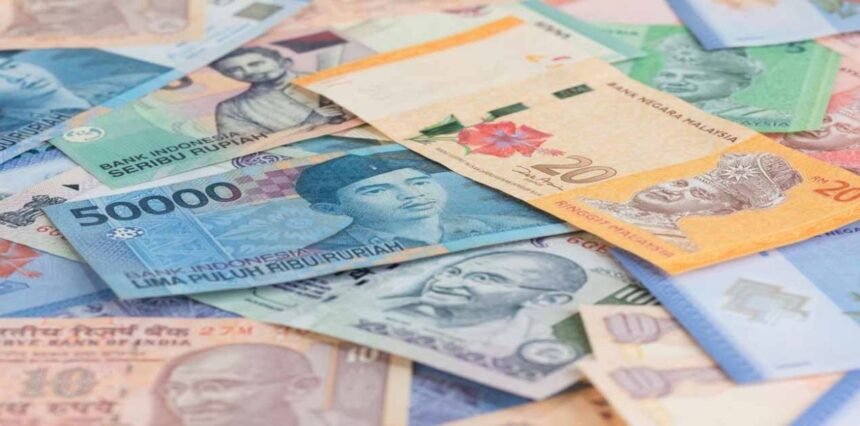Asian currencies fell on Thursday as the U.S. dollar firmed after the Federal Reserve signalled a more measured approach to easing, while Indonesia’s rupiah slid to a four-month low after its central bank delivered a surprise rate cut.
Indonesia’s equity benchmark gauge was trading at its highest-ever point in afternoon trade, while the rupiah slipped 0.6% to 16,515 per dollar, its weakest since mid-May.
Bank Indonesia on Wednesday surprised markets with a quarter-point cut to support growth amid social unrest and investor worries over fiscal discipline after the abrupt sacking of its finance minister.
“BI is likely to use a mix of liquidity operations and targeted interventions to smooth volatility and maintain orderly market conditions, particularly as the government’s pro-growth policies may raise concerns of fiscal slippage,” said Shier Lee LIM, lead FX and macro strategist at Convera in Singapore.
“While there may be short-term pressure on the IDR, the authorities’ ability to act pre-emptively should help mitigate the risk of disorderly movements.”
The rupiah is one of emerging Asia’s worst-performing currencies so far this year, pressured by a soft dollar, concerns over Indonesia’s finances, and, of late, the sudden cabinet reshuffle and concerns over the central bank’s autonomy.
Currencies across emerging markets pulled back against the dollar after the Federal Reserve delivered a widely anticipated quarter-point rate cut but indicated further policy easing would come at a steady pace, tempering market expectations of more aggressive easing.
The Philippine peso, Thailand’s baht, and South Korea’s won fell around 0.6% each, while Singapore dollar, Malaysian ringgit and Taiwan also lost ground.
Thailand’s baht clocked its steepest one-day decline in six weeks after the government said it will work with the central bank to arrest the currency’s strength, attributed to capital inflows in bonds and stocks, as well as gold trading.
The currency has gained more than 7% so far this year, second-best performer in the region after Taiwan’s dollar. That strength, deemed unnecessary by analysts, is threatening the country’s two key growth engines: exports and tourism.
Equities in the region were choppy in the afternoon trade: an MSCI gauge of EM Asia equities turned red, largely due to a 1% decline in Chinese stocks, though a fresh rally in Taiwan’s and South Korea’s stocks to record levels limited the downside.
The MSCI index, last down 0.4%, was on course to snap a 10-session winning streak. Stocks in Thailand fell further from a seven-month high touched early in the day, while Malaysia’s stocks declined 0.9%.
HIGHLIGHTS:
** Market expecting more easing after surprise Indonesia central bank cut
** Indonesian parliament committee approves 2026 budget; deficit seen higher at 2.68% of GDP
** Foreigners snap up Asian bonds in August after two-month hiatus
** Japan’s Nikkei closes at record high; Bank of Japan set to keep interest rate unchanged on Friday – Reuters poll
** China leaves policy rate unchanged; Hong Kong’s monetary authority cuts interest rate – Reuters





















